UN experts speak before the UP IHR’s National Academic Forum on the Rights of Indigenous Peoples
The UP Law Center Institute of Human Rights (UP IHR), together with Panaghiusa Philippine Network to Uphold Indigenous Peoples’ Rights, Indigenous Peoples Rights International, and the Legal Rights and Natural Resources Center (LRC) held the National Academic Forum on the Rights of indigenous People with the theme “Collaboration Towards the Advancement of the Rights of Indigenous Peoples in the Philippines” on 24 July 2024. The event was graced by keynote speakers Hon. José Francisco Calí Tzay, United Nations Special Rapporteur (UNSR) on the Rights of Indigenous Peoples, and Dr. Pichamon Yeophantong, Member of the UN Working Group on Business and Human Rights. Attending the event were over eighty Indigenous Peoples representing their communities from different areas in Luzon, island groups Palawan and Mindoro, Visayas, and Mindanao. Other participants include the Fmr. Special Rapporteur on the Rights of Indigenous Peoples Victoria Tauli-Corpuz and 2018 UN Environment Programme’s Champion of the Earth Awardee Joan Carling.
Setting the tone for the forum, Atty. Raymond Marvic Baguilat, UP IHR’s Head of Indigenous Peoples Law and Policy Programme, shared the importance of the academe in the protection and mainstreaming of human rights. He also shared the importance of academic freedom in surfacing matters that may have been concealed. Atty. Baguilat then facilitated the dialogue and invited the participants to share their lived experiences on the ground. Paving the way for them to converse about human rights violations, such as development aggression, red tagging, militarization, and extrajudicial killings that their communities have experienced.
Following the event was a plenary session, where Atty. Efenita Taqueban, Ph.D. Associate Professor of the Department of Anthropology, UP and LRC-Kasama sa Kalikasan, Ms. Bestand Sara Dekdeken of the Cordillera Peoples Alliance, Mr. Giovanni Reyes of the Philippine Indigenous Peoples Community-Conserved Territories and Areas Consortium, and Timuay Labi Leticio Datuwata of Timuary Justice and Governance, expressed systemic challenges of Indigenous peoples’ access to justice and the increasing incidences of violence and human rights violations against indigenous peoples in the Philippines.
Delivering their keynote speeches, UNSRIP Calí Tzay and Dr. Yeophantong elaborated on their mandates as UN Special Rapporteur on the Rights of Indigenous Peoples and Member of the UN Business and Human Rights Working Group, respectively. Hon. Tzay shared that Reports on Indigenous Peoples’ Rights in the Philippines support efforts to address human rights violations and seek accountability within the international community. UNSRIP Tzay further highlighted that “the mandate of the Special Rapporteur by sending your inputs on thematic report on human rights violations or best practices known. Thematic reports are important [for] recommendations, [identifying] issues on specific themes to lobby with your government [and] to have them implement or show them good practices that can be replicated in your country.” Dr. Yeophantong for her part, focused on the importance of human rights due diligence as it covers not only States but also businesses and is based on existing human rights laws and standards. She encourages participants to continue defending their rights and explained, “[W]ords only go so far when it’s your livelihoods, families, communities, and, indeed, your lives that are at stake; and for me who is working in Australia and originally from Thailand, it often feels to me too that I am far away from the real challenges, the real sadness that people in this room have obviously faced, but if it is any reassurance, if it is any consolation, I would like all of you to know that we are here. That we are willing to listen. That we know of the challenges that you face and that we are working to try and address them.”
The National Academic Forum on the Rights of Indigenous Peoples served as a venue for indigenous peoples to listen to the UN experts and allow an interactive exchange with them and with the legal community and the UP Indigenous Peoples Law and Policy Programme. The exchange has also paved the way for recommendations and ways forward to be established that will allow the participants to collectively act towards the protection of their rights.

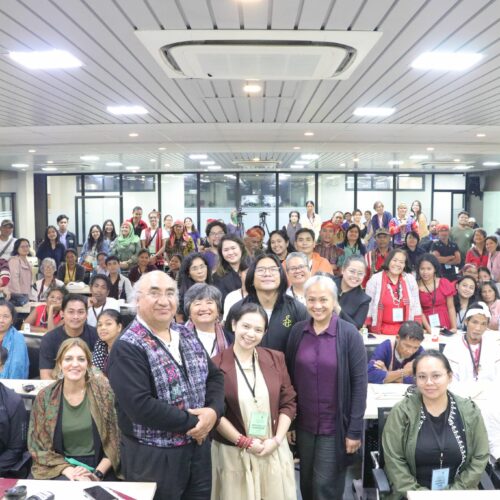
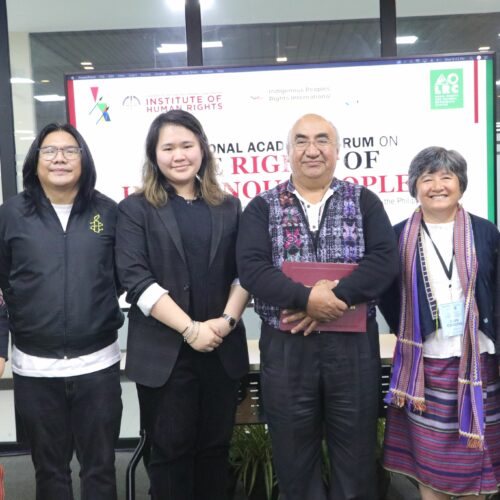
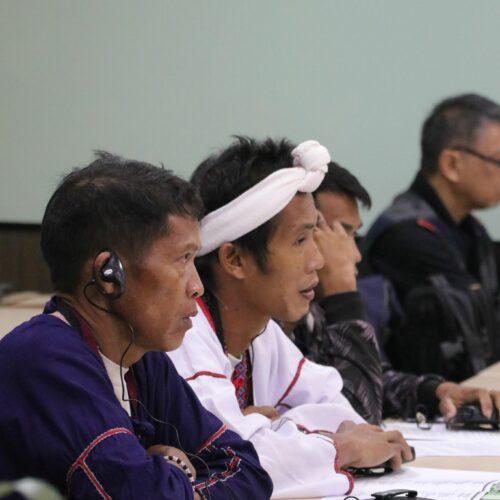
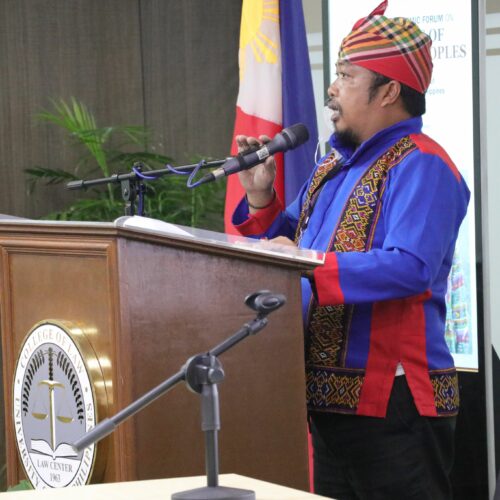
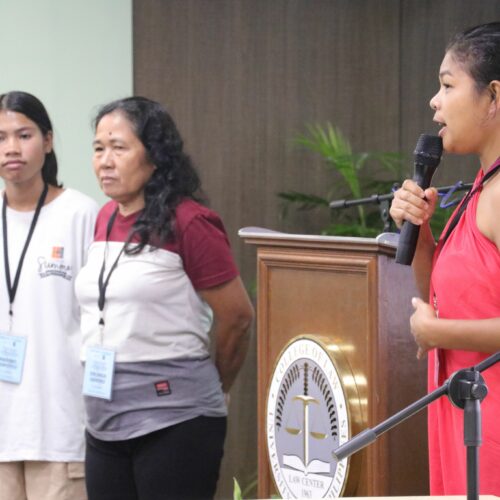
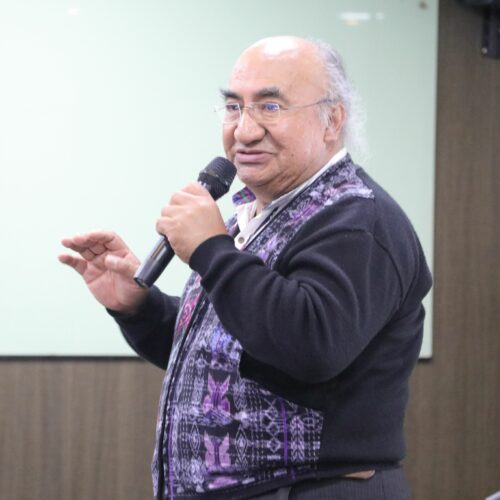
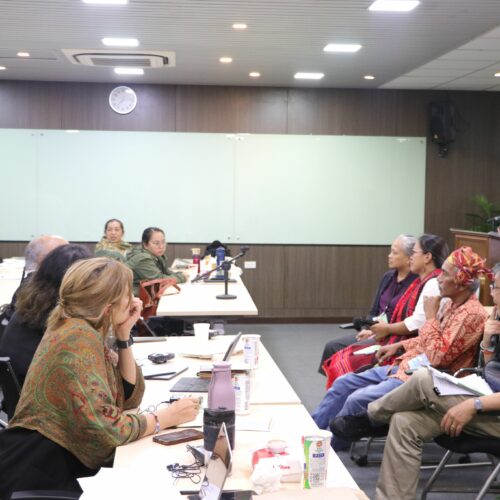
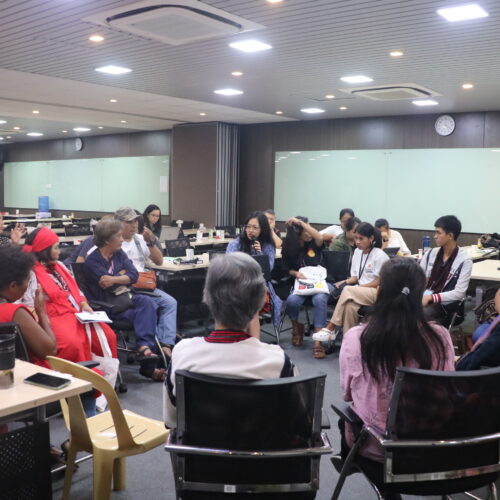






































































































 on the upper right corner to select a video.
on the upper right corner to select a video.